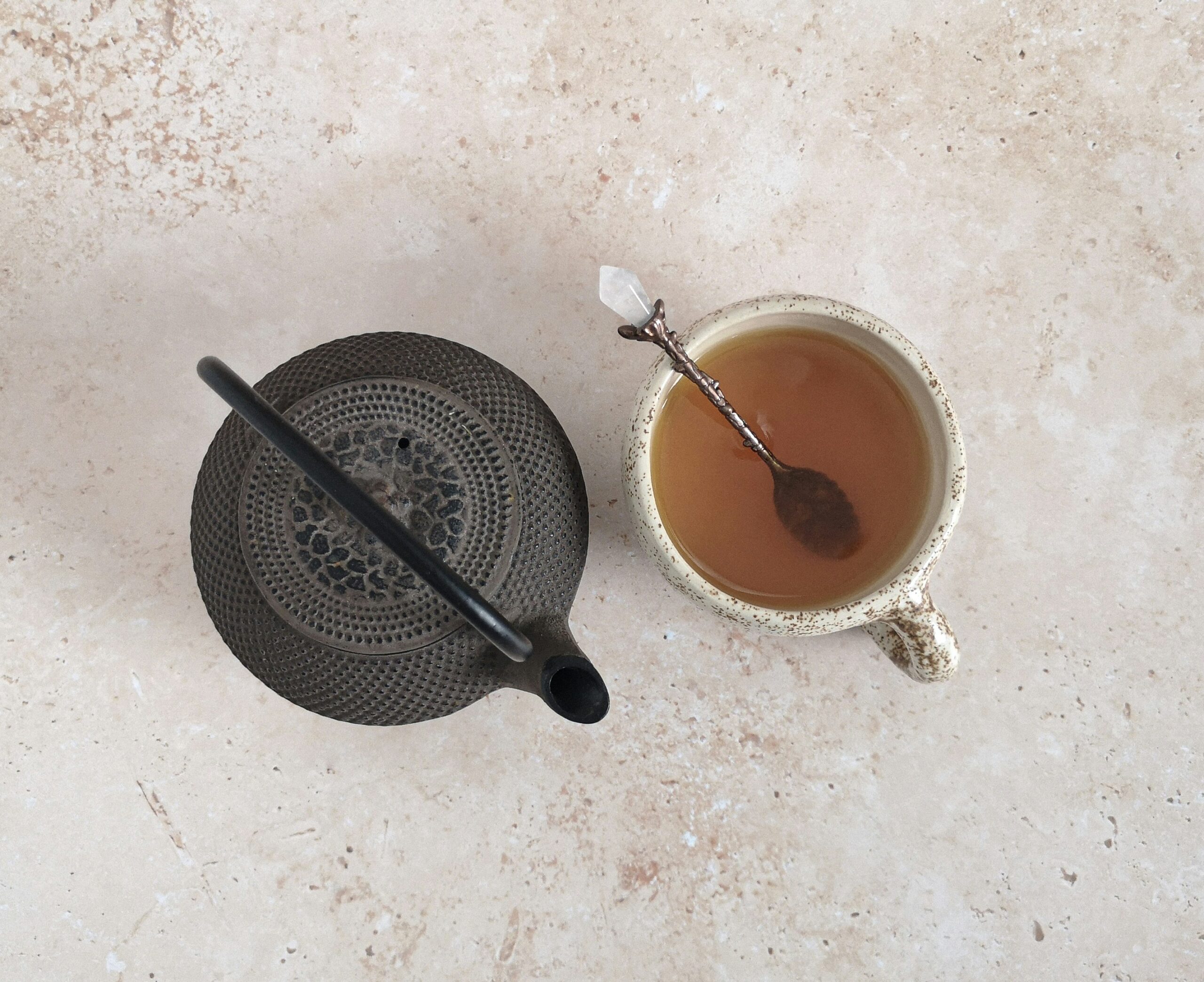
Echinacea is not just a popular remedy for colds and flu, it also offers significant benefits for your skin. Echinacea can help reduce inflammation, making it a useful treatment for conditions like acne and eczema. This natural herb is packed with antioxidants, which can help protect your skin from damage caused by free radicals.
Echinacea is known for its powerful anti-inflammatory and antimicrobial properties. These properties can assist in healing wounds and reducing redness and swelling associated with skin conditions. Research has shown that Echinacea can inhibit the growth of bacteria such as Propionibacterium acnes, which is a major cause of acne.
By incorporating Echinacea into your skin care routine, you can take advantage of its many benefits. Whether it’s through topical application or herbal supplements, Echinacea can help improve your skin’s health and appearance. With consistent use, you may notice a clearer, more radiant complexion.
Key Takeaways
- Echinacea reduces inflammation and helps treat acne and eczema.
- The herb has antimicrobial properties that fight bacteria causing acne.
- Regular use can lead to healthier and clearer skin.
Understanding Echinacea
Echinacea, a group of perennial plants often known as coneflowers, is native to North America and has a rich history and diverse species with different uses and benefits and part of the daisy family.
Historical Use by Native Americans
Echinacea has been used by Native Americans for centuries. They valued it for its healing properties in treating wounds, infections, and snake bites. Different tribes, like the Sioux and Cheyenne, used Echinacea purpurea and Echinacea angustifolia, common species of the echinacea plant. Native Americans prepared it as teas, poultices, and chewed the roots. Knowing these traditional uses helps you appreciate the deep roots of echinacea’s medicinal value.
Echinacea Species and Varieties
There are several species of Echinacea, primarily Echinacea purpurea, Echinacea angustifolia, and Echinacea pallida. These belong to the daisy family (Asteraceae) and are known for their bright purple flowers. Echinacea purpurea is the most commonly used for its immunostimulatory and anti-inflammatory properties. Each species has unique compounds that contribute to its benefits. Knowing these differences can help you choose the best variety for your needs.
Echinacea’s Active Compounds
Echinacea contains several active compounds known for their benefits to the skin. These include cichoric acid, polysaccharides, alkamides, and glycoproteins, each playing unique roles in promoting skin health.
Cichoric Acid and Its Effects
Cichoric acid is a powerful antioxidant found in Echinacea. This compound helps protect your skin cells from damage caused by free radicals. Free radicals can accelerate the aging process, causing wrinkles and fine lines.
By neutralising these harmful molecules, cichoric acid helps maintain a youthful appearance. Additionally, it has anti-inflammatory properties, reducing redness and swelling in the skin. It also supports collagen production, which is essential for skin elasticity and firmness. This makes Echinacea an effective ingredient in skincare products aimed at anti-aging and soothing irritated skin.
Polysaccharides, Alkamides, and Glycoproteins
Polysaccharides in Echinacea are known for their hydrating effects. These long-chain sugars help retain moisture in your skin, keeping it hydrated and plump. Hydrated skin is less prone to cracks and irritation, promoting a healthy barrier.
Alkamides contribute to Echinacea’s anti-inflammatory properties. They interact with your immune system to reduce inflammation, which can help in treating conditions like eczema and psoriasis.
Glycoproteins found in Echinacea aid in skin repair and regeneration. These molecules promote cell turnover, helping your skin recover from injuries and blemishes more quickly. They also support the skin’s structural integrity, offering added resilience against environmental stressors.
Echinacea’s combination of these active compounds makes it a valuable addition to skincare routines focused on hydration, inflammation reduction, and skin renewal.
Health Benefits of Echinacea
Echinacea offers significant health benefits, particularly for strengthening your immune system and reducing inflammation. These benefits are important for managing conditions like respiratory tract infections and arthritis.
Immune System Enhancement
Echinacea is a well-known herbal remedy for its ability to have a positive effect on your immune system. Clinical trials have shown that this herb can increase the number of white blood cells in your body. White blood cells help fight off infections and keep you healthy.
Many use Echinacea to prevent and treat respiratory tract infections, such as the common cold. Research has found that taking Echinacea may reduce the length and severity of symptoms. This makes it a popular choice for those looking to avoid antibiotics or other medications.
Echinacea is also believed to help activate immune cells that target viruses and bacteria. This means you may get sick less often and recover more quickly when you do.
Anti-inflammatory Properties
Echinacea has powerful anti-inflammatory effects. This is especially helpful for people with arthritis, including osteoarthritis. The herb works by reducing the production of cytokines, which are proteins that cause inflammation in your body.
By decreasing inflammation, Echinacea can relieve pain and swelling in your joints. This helps improve your mobility and comfort. Many people with chronic inflammatory conditions find Echinacea to be a useful part of their treatment plan.
Additionally, the anti-inflammatory benefits of Echinacea may extend to your skin. Some studies suggest that it can help reduce redness, swelling, and irritation. This makes it a useful ingredient in skincare products aimed at calming and soothing the skin.
Consider including Echinacea as a natural way to support your health and wellbeing.
Echinacea in Skin Care
Echinacea is renowned for its potential benefits in skin care. It has properties that may help reduce skin inflammation and lessen the appearance of wrinkles.
Combatting Skin Inflammation and Eczema
Echinacea is known for its anti-inflammatory properties, which makes it an effective ingredient for managing skin concerns like inflammation and eczema. Studies suggest it can help control the growth of harmful bacteria, reducing Propionibacterium acnes that can cause acne and other skin issues.
In addition to its anti-inflammatory effects, Echinacea may speed up wound healing, assisting the skin in recovery from irritation and breakouts. Its ability to soothe skin reduces redness and discomfort associated with eczema and other dermatological conditions.
By enhancing skin hydration, Echinacea can strengthen the skin barrier, making it more resilient. This can be particularly beneficial for those with chronic skin issues that cause dryness and sensitivity.
Anti-ageing Effects and Wrinkle Reduction
Echinacea also offers benefits in combating signs of ageing. Studies indicate that formulations containing Echinacea purpurea can improve skin hydration and reduce the appearance of wrinkles. Its efficacy in increasing skin moisture helps maintain elasticity and firmness, which are vital for youthful skin.
Hydrophilic and lipophilic emulsions containing Echinacea purpurea extract have shown promising results for reducing different types of pruritus and improving skin texture. These properties make Echinacea a valuable component in anti-ageing creams and serums, helping to smooth out fine lines and wrinkles.
Incorporating Echinacea into your skin care routine can provide a two-fold benefit: combating inflammation and delaying signs of ageing, contributing to healthier and more radiant skin.
For more detailed information, you can explore studies like this one on Echinacea’s efficacy or research on Echinacea and acne.
Supporting Research
Echinacea has been studied for many potential benefits, particularly in skin care and cold and flu prevention. Below, we delve into the clinical studies on Echinacea, its potential to prevent colds and flu, and an analysis of its efficacy and safety.
Clinical Studies on Echinacea
A number of clinical studies have explored Echinacea’s effects on skin conditions. One study tested a standardized Echinacea extract for its ability to control the growth of Propionibacterium acnes, a bacteria that causes acne. It showed promise in both inhibiting bacterial growth and reducing inflammation.
In another study, Echinacea purpurea cream and gel were tested for their ability to improve skin hydration and reduce wrinkles. The formulations were found to be effective in improving skin appearance without causing irritation. These studies suggest that Echinacea may help enhance skin texture and treat common dermatological issues.
Potential in Cold and Flu Prevention
Research on Echinacea has also explored its potential in preventing colds and the flu. Studies indicate that Echinacea extracts may reduce the duration and severity of symptoms when taken at the onset of a cold or flu. This aligns with traditional uses of Echinacea for boosting the immune system.
For example, preliminary studies mentioned in an evidence-based systematic review found that oral Echinacea might be beneficial for people with recurrent colds. It was noted for its role in improving overall health and potentially reducing the frequency of infections. Although more research is needed, these findings are promising for people looking for natural remedies.
Analysis of Echinacea’s Efficacy and Safety
An analysis of Echinacea’s efficacy and safety is essential for understanding its role in both skin care and immune support. Multiple studies have examined its impact on the immune system, confirming that it can help modulate immune responses without causing harm.
Echinacea has not been shown to activate the immune system in the absence of an actual threat, helping to avoid unnecessary inflammation. For skincare, Echinacea formulations have been tested extensively, demonstrating both efficacy and safety, even for sensitive skin. These findings support the use of Echinacea as a beneficial ingredient in various health and beauty products.
Echinacea as a Supplement
Echinacea is commonly available in various forms and is popular for its potential health benefits. Here, we explore the common forms Echinacea is available in and the recommended dosages for each type.
Common Forms and Uses
Echinacea can be found in several supplement forms. These include teas, tablets, capsules, and tinctures. Many people use Echinacea to boost their immune system, particularly during cold and flu season.
Tablets and capsules are popular for their convenience. They often contain a standardised amount of Echinacea extract. Teas made from Echinacea are another common form. They are easy to prepare and can be soothing, especially when you’re feeling under the weather.
Tinctures are concentrated herbal extracts. They can be easily added to water or juice. Tinctures allow for easy dosage adjustment. Each form has its own benefits, and you can choose based on your preferences and needs.
Recommended Dosages
Dosages vary based on the form of Echinacea you use. For capsules or tablets, it’s typical to take 300-500 mg three times daily.
When using Echinacea teas, 1-2 teaspoons of dried Echinacea are steeped in hot water for 10-15 minutes. You can drink this 2-3 times a day. Tinctures usually recommend a dosage of 2.5 ml, taken up to three times a day.
Dosages might differ for children or those with specific health conditions. It’s always best to consult with a healthcare provider before starting any new supplement regimen.
RELATED: How To Start Your Herbal Medicine Cabinet
Side Effects and Contraindications
Echinacea is often used to support skin health, but it can cause some adverse effects. It’s important to be aware of the potential side effects and contradictions, particularly if you have specific allergies or are pregnant.
Allergic Reactions and Asthma
Echinacea can trigger allergic reactions, particularly in people with allergies to other members of the Asteraceae family, such as ragweed and daisies. These reactions can range from mild to severe. You might experience symptoms like a rash, hives, or itching. In some cases, there could be more serious reactions like anaphylaxis, which is a medical emergency.
People with asthma should be cautious as well. There have been reports of Echinacea causing asthma attacks in some individuals. If you have a history of asthma or other respiratory issues, it’s best to consult your healthcare provider before using Echinacea. Always monitor for any signs of an allergic reaction to ensure your safety.
Gastrointestinal Issues and Risks During Pregnancy
Echinacea can cause gastrointestinal problems in some people. Symptoms might include nausea, vomiting, and diarrhoea. These side effects are generally mild but can be uncomfortable. If you experience any of these symptoms, it might be best to stop using Echinacea and discuss it with your doctor.
There are also concerns regarding the use of Echinacea during pregnancy. Although there is not enough conclusive evidence, some studies suggest potential risks. It is generally advised that pregnant and breastfeeding women should avoid using Echinacea without consulting their healthcare provider, to minimise any potential risks to the baby.
In essence, while Echinacea has its benefits, it is crucial to be aware of its potential side effects and speak with a healthcare professional if you have any concerns.
Holistic Approaches to Health
Holistic health considers the whole person, not just specific ailments. Echinacea has a rich history in traditional medicine, particularly for skin issues. This section explores its historical context and how you can integrate it with other natural remedies.
Echinacea in Traditional Medicine
Echinacea has been widely used in various traditional practices. Indigenous peoples in North America utilised Echinacea for its diverse applications, including pain relief and treating toothaches. It’s also a traditional remedy for snake bites, due to its purported anti-inflammatory properties.
Its ability to act as a natural antibiotic made it valuable before modern medicine was accessible. You might find it interesting that some cultures used Echinacea not just for physical ailments but also for mental health conditions. This plant’s roots and extracts were often employed to reduce severity of symptoms such as anxiety and depression.
When it comes to skin treatment, Echinacea is noted for its moisturising properties. Some studies show that it can help in preventing skin infections and reducing inflammation. Ultimately, Echinacea’s varied uses in traditional medicine highlight its role in a well-rounded, holistic health approach.
Integrating with Other Natural Remedies
Combining Echinacea with other natural treatments can maximise its benefits. For example, Echinacea paired with goldenseal can enhance immune system support, making it more effective in fighting infections.
Using ginger alongside Echinacea may aid in digestion and reduce nausea, providing a more comprehensive internal health approach. If you’re looking at skin health, coupling Echinacea with fish oil can provide anti-inflammatory benefits and nourish your skin from within.
For pain relief, you might combine Echinacea with garlic supplements, as both have anti-inflammatory properties. It’s also suggested that ginseng and Echinacea together can support overall vitality, especially during periods of high stress.
By carefully integrating Echinacea with other natural remedies, you can take a more effective and holistic approach to your health. Keep in mind, always consult with a healthcare professional before starting any new treatment plans.
Considerations Before Use
Before you start using Echinacea for skin benefits, it’s important to be aware of certain factors. These include seeking medical advice and understanding potential interactions with medications or chronic conditions.
Consulting with Healthcare Professionals
Before incorporating Echinacea into your skincare routine, consult with a healthcare professional. This is crucial, especially if you have pre-existing health conditions. Medical advice can help determine if Echinacea is suitable for your skin type and health status.
People with chronic conditions such as diabetes need to be cautious. Echinacea might affect blood sugar levels. Those with autoimmune disorders or allergies should also seek medical advice because Echinacea can trigger adverse reactions.
Medication Interactions and Chronic Conditions
Echinacea can interact with certain medications, making it vital to discuss its use with your doctor. It may influence the effectiveness of drugs you are taking. For instance, Echinacea may have interactions with immunosuppressive medications and some antibiotics.
If you suffer from chronic conditions like urinary tract infections, diabetes, or other long-term health issues, pay attention to how Echinacea could affect you. Its use can sometimes exacerbate symptoms or alter the way your body processes other medications.
By consulting with healthcare professionals and understanding medication interactions, you can use Echinacea safely and effectively.
The Future of Echinacea Research
Future research on Echinacea is promising due to its potential health benefits. Studies suggest that Echinacea may help in boosting immunity by influencing cytokines, which are proteins crucial for cell signalling in immune responses.
Researchers are examining its effects on cancer cells. Early findings indicate potential anti-cancer properties, but more rigorous studies are needed to confirm these results.
Emerging studies are also looking into Echinacea’s role in skin health. Its anti-inflammatory and antioxidant properties could make it effective in treating skin infections and improving skin’s barrier function.
Potential Future Research Focus:
- Immunity: Further studies on how Echinacea interacts with the immune system and cytokines.
- Cancer: Detailed research to validate its efficacy against cancer cells.
- Skin Health: Exploration of its benefits on skin conditions and infections.
Interest in the biotechnological applications of Echinacea is growing. There are considerations for its use in cosmetics, such as face washes and creams, due to its protective effects on skin.
You can learn more about how Echinacea might protect the skin and improve skin connective tissue from various studies on this topic. For instance, Echinacea plants as antioxidant and antibacterial agents offers insights into its antimicrobial potential.
The ongoing research will shed more light on these benefits, paving the way for new and advanced applications in medicine and skincare.



Comments +